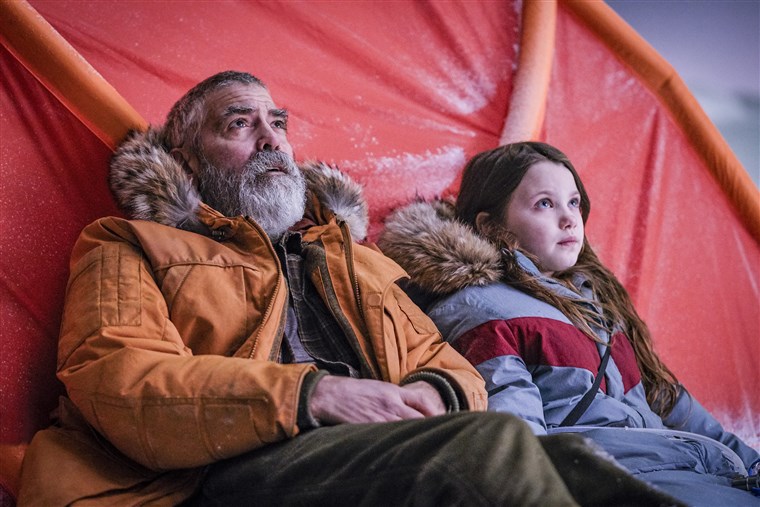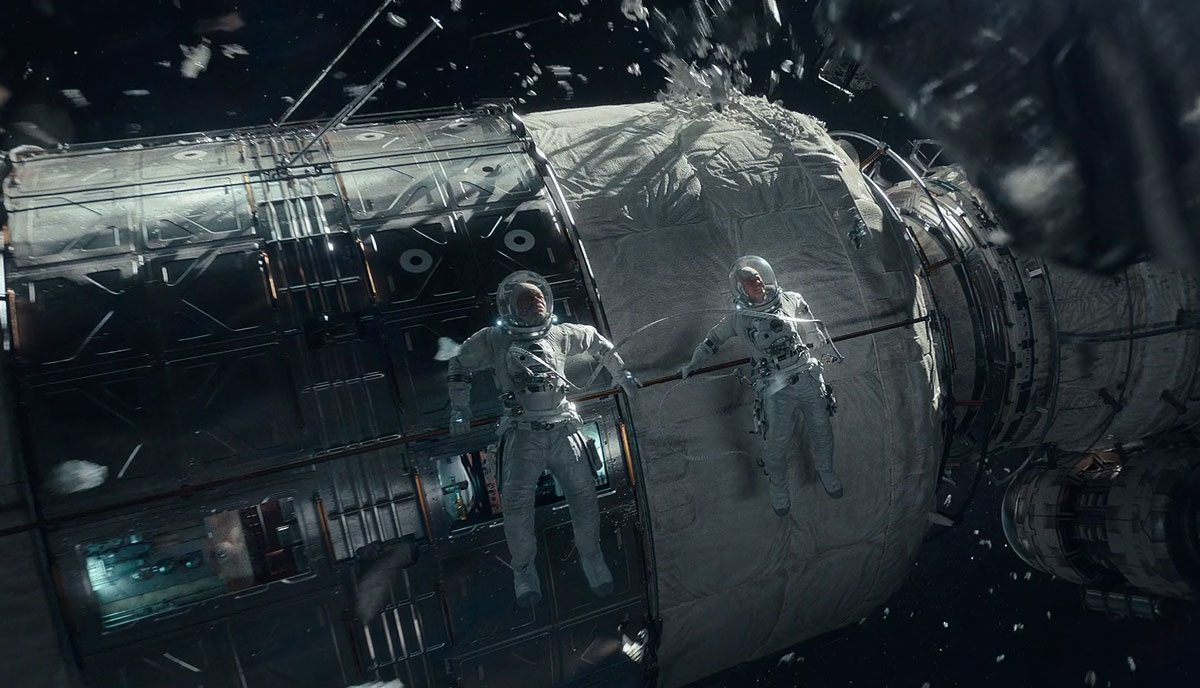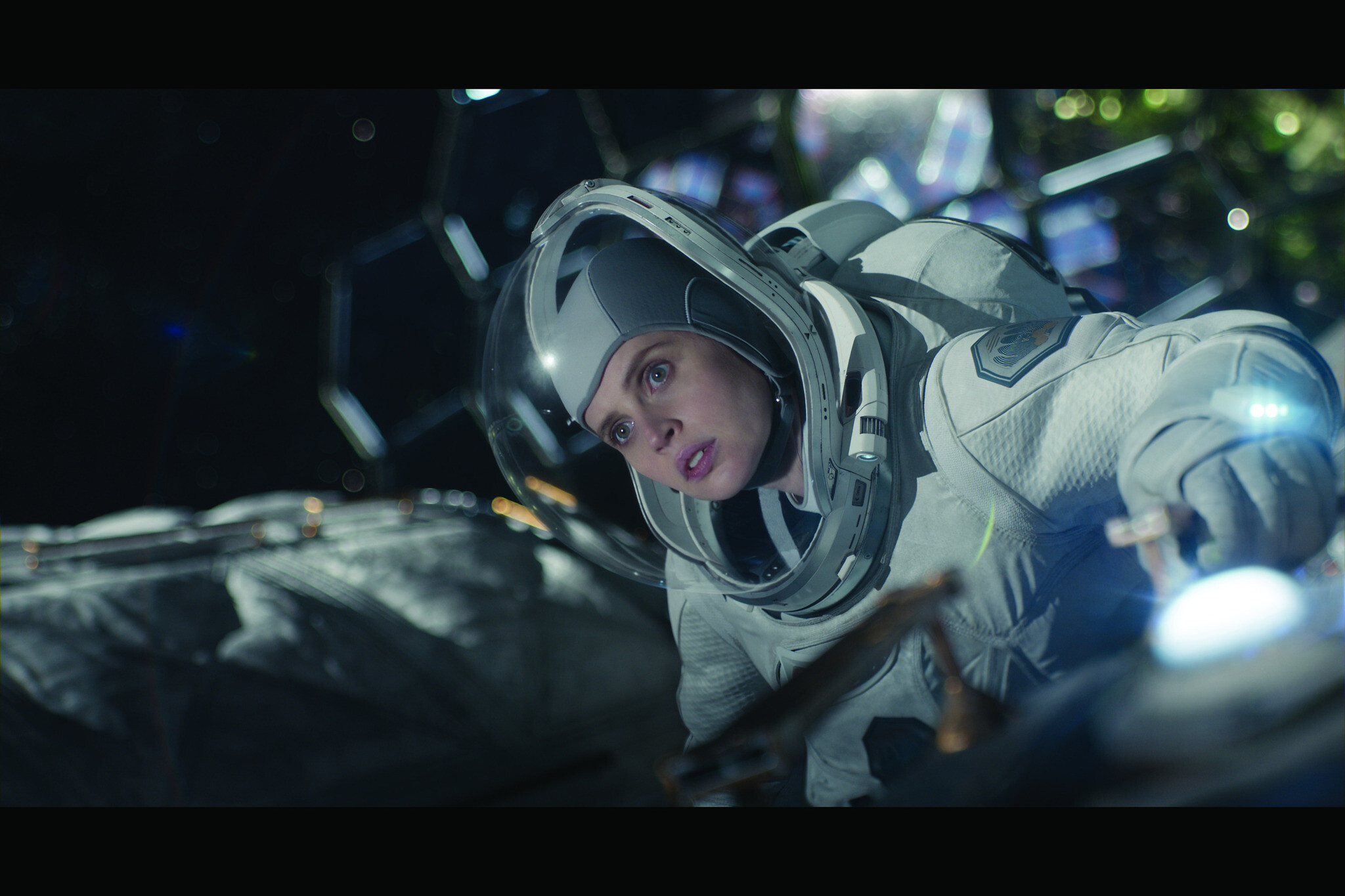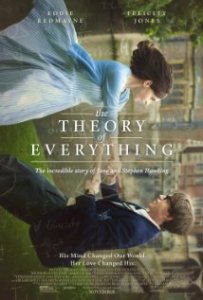


26/12/20
Netflix
What a strange, mournful film The Midnight Sky is! It’s hardly the feel-good picture to end 2020 on a note of hope and yet, for all that, George Clooney’s futuristic saga exerts a slow-burning grip, as it gradually unfolds a story that takes place in two major locations, millions of miles apart.
It’s the year 2045 and the Earth is comprehensively doomed. There’s been some kind of global catastrophe – the intimation is there’s been a sudden rise in radiation levels – which means that the planet’s inhabitants are counting down their final days. Scientists based in a research station in the Arctic circle, one of the last places to be affected, are making a last desperate bid to escape, but Augustine Lofthouse (Clooney) figures there’s no point in going with them. He has a serious illness and has to depend on nightly dialysis in order to eke out his final days – see, I told you it was gloomy!
Lofthouse decides to spend what time he has trying to contact the space craft AEther, which is returning from a mission to K-23, one of Jupiter’s moons, where they’ve been investigating its potential as an alternative place to live. Lofthouse feels particularly bad about the crew’s situation, since he’s the man who discovered K-23 and is indirectly responsible for sending them out there in the first place. But they are still out of range of his communication signals and he’s rapidly slipping away.
Then Lofthouse discovers that he’s not alone. A little girl is hiding out on the base. Iris (an adorable debut by Caolinn Springall) doesn’t seem to have the power of speech, but she gives Lofthouse another reason to stay alive as long as he can.
Meanwhile, on the AEther, Captain Adewole (David Oyelowo) and his pregnant partner, Sully (Felicity Jones), are heading home through a previously uncharted section of space, an area where sudden meteor storms are a regular occurrence. And of course, there’s the added irony of the situation. They and the other members of their crew have no idea that they are all returning to a dying planet…
If my synopsis makes this feel like a somewhat disparate story, let me assure you that the cuts back and forth are nicely judged and expertly handled – Clooney directed this and he’s done so with considerable skill. A series of short sequences featuring Ethan Peck as a younger Lofthouse seem at first to add very little to the story, but they do make perfect sense when we get to its poignant conclusion. Before that, there’s plenty to keep me on the edge of my seat – on earth, there’s a heart-stopping encounter with melting ice and, in the midst of a blizzard, an attack by wolves. Up in the eye-popping splendour of the solar system we witness the most terrifying cinematic space walk since Gravity. And then, in the film’s final stretch, there’s a last act reveal that I really don’t see coming and which has me reaching for a hanky.
The Midnight Sky won’t be to everyone’s taste. I’ve already seen some dark mutterings about it on social media, complaints that it isn’t the straightforward action/adventure that people were expecting. Well, fair enough, it certainly isn’t that but, to my mind, it’s much more. It’s a dire warning about what humankind is doing to the world it currently inhabits, a plea for us to start investigating alternative worlds. It’s also a meditation on our inbuilt compulsion to survive at all odds.
And, miserable creature that I am, I find it genuinely uplifting.
4 stars
Philip Caveney










